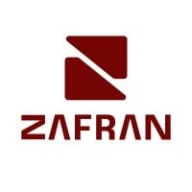


Nucleus and Unified Vulnerability Management are competing in the realm of vulnerability management tools. Unified Vulnerability Management seems to have the upper hand due to its advanced features.
Features: Nucleus offers user-friendly threat detection tools, customizable dashboards, and simplicity. Unified Vulnerability Management provides comprehensive analytics, robust integration capabilities, and extensive analytical power.
Ease of Deployment and Customer Service: Nucleus offers straightforward deployment with responsive customer service. Unified Vulnerability Management has a more complex setup but compensates with extensive customer support resources.
Pricing and ROI: Nucleus provides cost-effective setup options with solid ROI, appealing to budget-conscious buyers. Unified Vulnerability Management requires a higher initial investment, justified by advanced features that deliver significant long-term ROI.
Zafran Security integrates with existing security tools to identify and mitigate vulnerabilities effectively, proving that most critical vulnerabilities are not exploitable, optimizing threat management.
Zafran Security introduces an innovative operating model for managing security threats and vulnerabilities. By leveraging the threat exposure management platform, it pinpoints and prioritizes exploitable vulnerabilities, reducing risk through immediate remediation. This platform enhances your hybrid cloud security by normalizing vulnerability signals and integrating specific IT context data, such as CVE runtime presence and internet asset reachability, into its analysis. No longer reliant on patch windows, Zafran Security allows you to manage risks actively.
What are the key features of Zafran Security?
What benefits can users expect from Zafran Security?
In industries where security is paramount, such as finance and healthcare, Zafran Security provides invaluable protection by ensuring that only exploitable vulnerabilities are addressed. It allows entities to maintain robust security measures while allocating resources efficiently, fitting seamlessly into existing security strategies.
Nucleus provides a streamlined data management and collaboration platform that enhances efficiency. With robust analytics and seamless integration, it empowers businesses to make informed decisions swiftly.
Nucleus serves as a transformative tool in data management, offering a comprehensive suite of features designed to boost productivity and data integrity. Known for its user-friendly interface and powerful analytics, Nucleus stands out by facilitating seamless collaboration across teams while maintaining secure and centralized data control. The platform's exceptional adaptability allows it to integrate effortlessly with existing systems, supporting a wide array of use cases.
What are the most important features of Nucleus?In industries such as finance, healthcare, and manufacturing, Nucleus is implemented to enhance data-driven strategies, optimizing operational workflows and ensuring compliance with industry standards. This adaptability across sectors underscores its value in addressing specific business challenges with tailored solutions.
Unified Vulnerability Management streamlines the identification and management of security risks. It's designed to enhance cybersecurity efforts by providing consolidated tools and insights for managing vulnerabilities.
Unified Vulnerability Management plays a crucial role in cybersecurity by centralizing tools and processes, optimizing risk management with real-time insights, and offering customizable reporting. Its integrated approach allows organizations to address threats promptly, ensuring a proactive security posture.
What are the key features of Unified Vulnerability Management?
What benefits should users look for in Unified Vulnerability Management?
In sectors like finance and healthcare, Unified Vulnerability Management is implemented to meet compliance requirements and protect sensitive data. Its robust capability to manage complex environments supports integration into diverse organizational frameworks, ensuring tailored solutions for industry-specific challenges.
We monitor all Risk-Based Vulnerability Management reviews to prevent fraudulent reviews and keep review quality high. We do not post reviews by company employees or direct competitors. We validate each review for authenticity via cross-reference with LinkedIn, and personal follow-up with the reviewer when necessary.